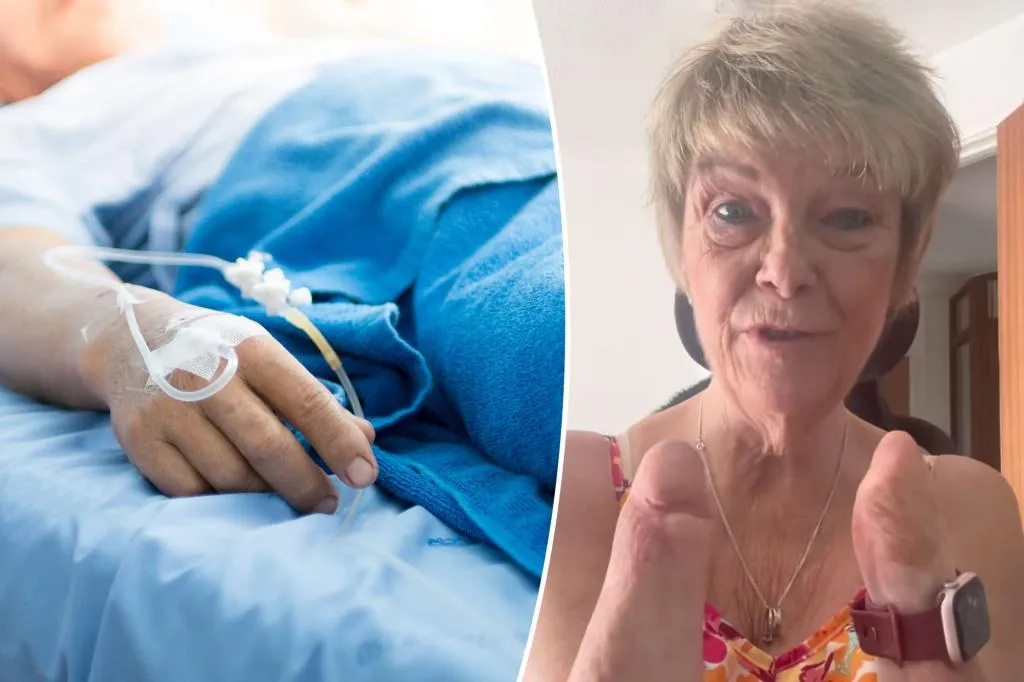A quadruple amputee says an incredibly common infection that affects about 15 million women in the US every year -- and is usually cleared up by antibiotics -- nearly killed her.
And it wasn't because she didn't seek medical attention -- even if she did initially put down her symptoms to other things like asthma and cold weather.
In fact, both a hospital and a doctor turned her away before things took a turn for the worse.
Holding up her arms, which are amputated at the wrist, a British woman named Kim (@kims2dchance) explained, "This was caused by a UTI."
"I lost my hands and my legs above the knee because of a UTI. It developed into sepsis, and it almost killed me," she added..
UTIs begin when bacteria enter the urethra and multiply, infecting the urinary tract.
Symptoms include the urgent need to urinate, a burning sensation when peeing, pressure or pain in the lower abdomen or pelvic region, cloudy or blood-tinged urine, and urine with a strong odor.
The infection is 30 times more common in women, affecting about 60% of all women once in their lifetime -- compared to about 12% of men.
While vacationing in Spain, Kim developed pain in her lower back that she attributed to a UTI.
Even as her pain worsened and her symptoms expanded, Kim initially dismissed her discomfort.
"I had severe breathlessness that I put down to my asthma," she said. "I had confusion and slurred speech, and I put that down to a medication that I used to take. I wasn't passing much urine that day, but I hadn't really noticed. I had uncontrolled shivering, but I just thought, 'It's the cold weather.'"
However, her instincts told her to seek medical attention.
"Something in my gut told me that I wasn't right and something wasn't normal, and to get to the hospital," she recalled.
“They turned me away. I went to the doctor’s the following day. He turned me away. I now know I was already septic then.”
Given a prescription for antibiotics that the local pharmacy was unable to fill, Kim returned to her hotel only to wake up in the middle of the night in life-threatening pain.
Her husband took her to the emergency room where she was put into a medically induced coma.
Kim’s UTI had developed into sepsis, which occurs when a bacterial, viral, or fungal infection impacts the body’s immune system, causing a high heart rate, fever, or fast breathing.
Septic shock is the most severe form of sepsis when a blood infection lowers one’s blood pressure to dangerous levels, eventually damaging multiple organs and sometimes leading to death.
After Kim was airlifted back to the UK for treatment, her limbs, which had turned black as a result of the sepsis, required amputation.
"How I survived, I do not know. It's a miracle, but I think it's so that I can warn you and save your life," she said.
Bacterial infections are the most common cause of sepsis, while the most frequent viral causes include flu and COVID-19.
About three in every 10 hospital patients with severe sepsis and half of those with septic shock die.
"I'm here to warn you that if you've got any infection at all, don't think it won't happen to you because I was fit and healthy and it happened to me. And it could be you. Watch out for symptoms of sepsis," cautioned Kim.
